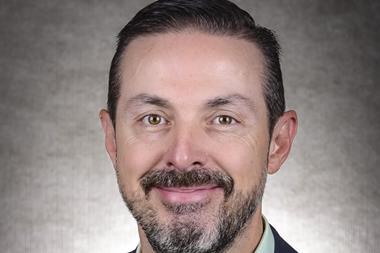A recent survey shows that health and safety issues have a significant influence on corporate reputation. Neville Purvis believes companies should take a positive approach.
The recent MORI survey commissioned by the British Safety Council showed that every one of 204 top executives believed that managing their corporate reputation was important. Eighty-three per cent of them said it was very important.
Eighty one per cent believed that health and safety issues have a significant impact on a company's corporate reputation; eighty-seven per cent believed these issues would be important in the future. Equally significant, executives rated corporate reputation
second, only behind employee morale and retention, as likely to be affected by a poor health and safety culture.
Managing goodwill among key stakeholder groups is so important to Britain's largest companies that board directors usually take responsibility for health and safety. In nearly half the cases highlighted by MORI, the top director (Chairman, CEO or Managing Director) claimed to have overall legal accountability. The survey showed that health and safety issues are key drivers of corporate reputation. Major compa-
nies see them as affecting their market share, competitiveness, profitability, reputation and customer confidence. Others said that poor health and safety would damage employee morale, and would damage the confidence of shareholders and of local communities. In the service sector, poor health and safety could lead to the loss of licence to operate and draconian employer's liability, legal and insurance costs.
Additional interviews showed that the Paddington rail crash had reminded management forcibly of the perils associated with health and safety. One interviewee (a group health and safety director) remarked, in passing, that he had been scouring the Queen's speech from the previous day to look for any planned changes to the law on corporate manslaughter, a sign of the underlying high stakes that senior managers are increasingly facing.
In general, senior managers took an enlightened or sophisticated view of health and safety, although this differed between companies. The distinction can be summarised as the difference between duty on the one hand and pride on the other. Everyone sees proper management of health and safety as a duty; most also see it as a matter of pride.
A frequent observation was: "Health and safety are part of the culture of our company". The arguments for health and safety are evolving away from mere legal compliance towards competitive advantage and world-class business performance. Sophisticated managements view health and safety not as a separate function or responsibility but as part of broader initiatives to do with productivity, profitability and competitiveness. Increasingly, health and safety involves pursuing the positive rather than simply avoiding the negative.
Striving for excellence
Health and safety performance can affect corporate and brand reputation. However, perhaps health and safety thinking needs to move beyond monetary value, beyond even corporate or brand reputation to take up the high ground of striving for world-class excellence. Here, health and safety becomes part of "doing it right" rather than being seen as an end in itself.
In the aftermath of the Turnbull report on corporate governance, executives are likely to focus ever more closely on risks to reputation. Threats from competition, finance or litigation are easily identified. But too many firms engage in reputation roulette by simply ignoring everyday, if indirect, threats to their reputation from operational hazards.
Turnbull's Combined Code on Corporate Governance focuses on the protection of shareholders' investment and company assets (including reputation) through sound systems of control and regular reviews of the effectiveness of controls. It specifically lays emphasis on finance, operations, compliance and risk management and on the need for companies to review the requirement for an internal audit function regularly.
It advocates a healthy level of controlled risk, through maintaining awareness of changing threats and opportunities and provision of better information to decision-makers to enable more informed risk taking. Other important factors are the need to effect cultural change, consultation in initiating such change and the development of an early warning system. Good reporting lies at the core of the Combined Code.
All these factors apply just as much to health and safety performance as to any other component of the business.
A company's reputation is a function of company size, growth, product quality, corporate identity and the strength of the association with other organisations, key customers and regulators.
Diversification strategy, accounting profitability, risk culture and social responsiveness also contribute significantly to developing and maintaining a firm's standing with its stakeholders.
Outside the corporation, market risk and returns, media exposure, dividend yield and ownership are key influences on reputation, as are the activities of regulators and the attitudes and pressure groups. All feed into the reputation mix. Consequently, managing reputation is highly complex, relying heavily on creating a positive perception in the eyes of many people both inside and outside the organisation.
To date, direct investment in addressing the understanding of strategic, legal and operational risks has been less than spectacular. Big operational failures still occur. They illustrate the complexity of safely managing non-financial risks - risks which are based on the complex interaction between human behaviour and business Yet successful management of such risks is vital to a company's reputation, and health and safety risks are among the most important.
Little can be more damaging to a company's reputation than the serious injury or death of one or more of its employees, customers or stakeholders, as a direct, or indirect result of its operations. Health and safety obviously has a role in protecting corporate reputation by ensuring such occurrences do not happen. A good health and safety culture also provides an opportunity to enhance a company's reputation. It will produce tangible results in terms of fewer accidents at work and a lower incidence of work-related illness.
Good health and safety regimes save organisations money by reducing employer's liability claims and avoiding court fines. At the same time, they see increases in productivity which help them to win new contracts. These are achievements of which companies can be proud. By setting targets for health and safety performance, measuring success and, most crucially, reporting the results to stakeholders, companies can exploit such achievements to improve their reputations.
Few companies currently take health and safety to this ultimate conclusion. They are losing a great opportunity to enhance corporate reputation.
--
Sir Neville Purvis is director general of the British Safety Council.
European Council On Health And Safety
The European Council on Health and Safety covers safety in industrial and commercial operations, industrial hygiene, measurement and benchmarking, regulatory matters, health monitoring and fire protection. Its mission is to create a forum for open discussion, between members, of generic issues related to their functional responsibilities.
In turn, this will create a network of senior executives in the health and safety arena across all industries,
which will help individuals to introduce best practices into their organisations while enhancing their own knowledge and professionalism. The council's project director is lain Ross, formerly director of manufacturing and engineering, Dow Corning. Membership of the council consists of those having functional responsibility for safety and occupational health at a European level.
Recent topics discussed include: * The improvement of living and
working conditions
The Council meets three times a year. Member companies include: Bestfoods Europe, British Airways pic, BTpic, Cargill BV, Case Europe, Dow Corning Europe, Electrabel, Fort James UK Ltd, Fortum Oil and Gas Oy, Freudenberg & Co, NV Nederlandse Gasun/e, ICL, Lucent Technologies, Nestec SA. Novo Nordisk A/S, Sara Lee/Douwe Egberts NV and Unilever.
For more information, contact: geraldine.molloy@conference-board.org .



















